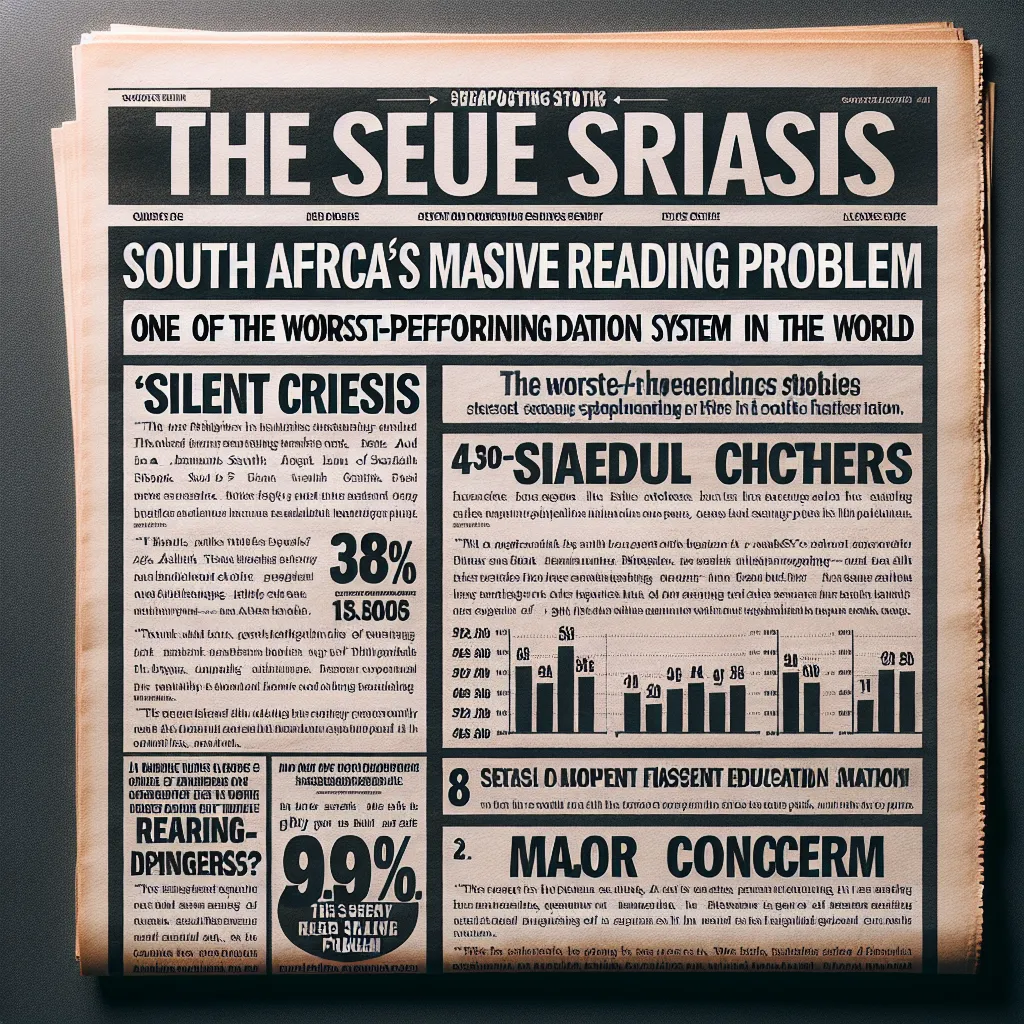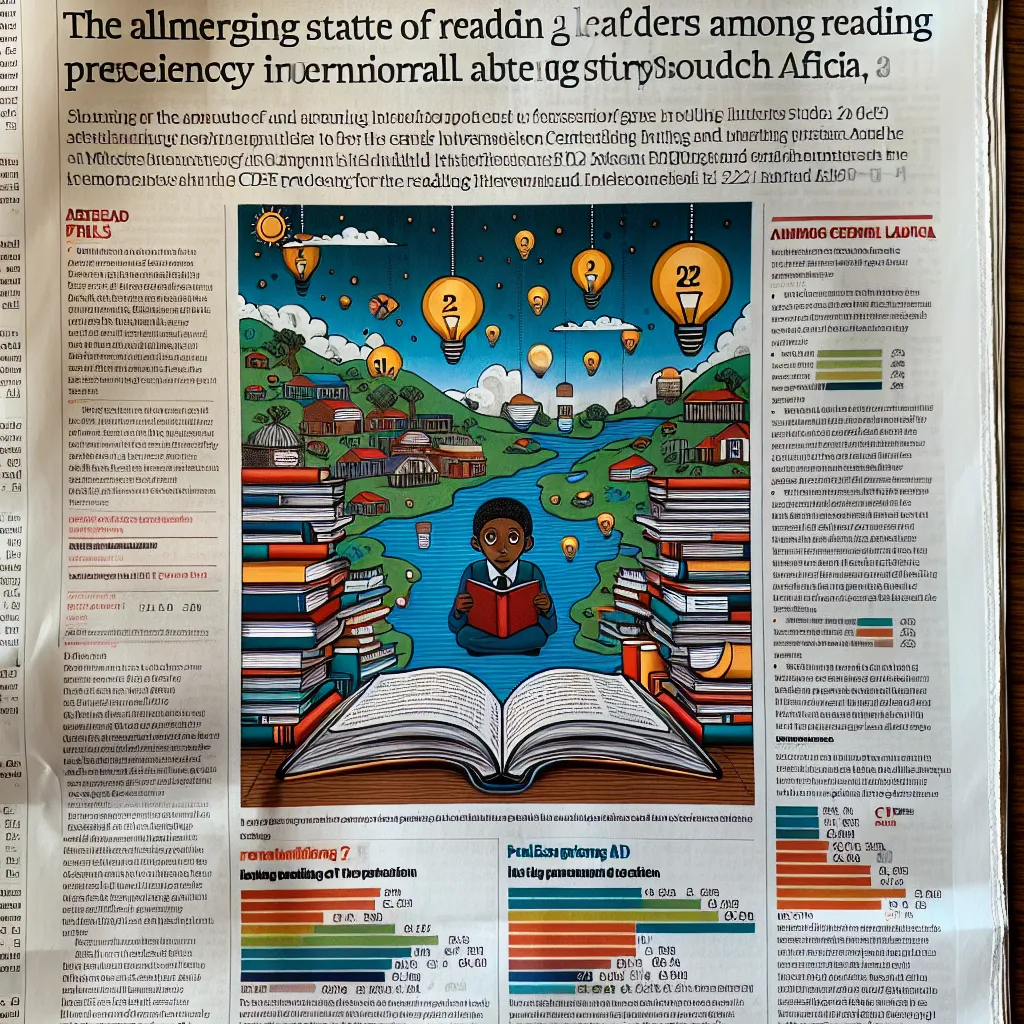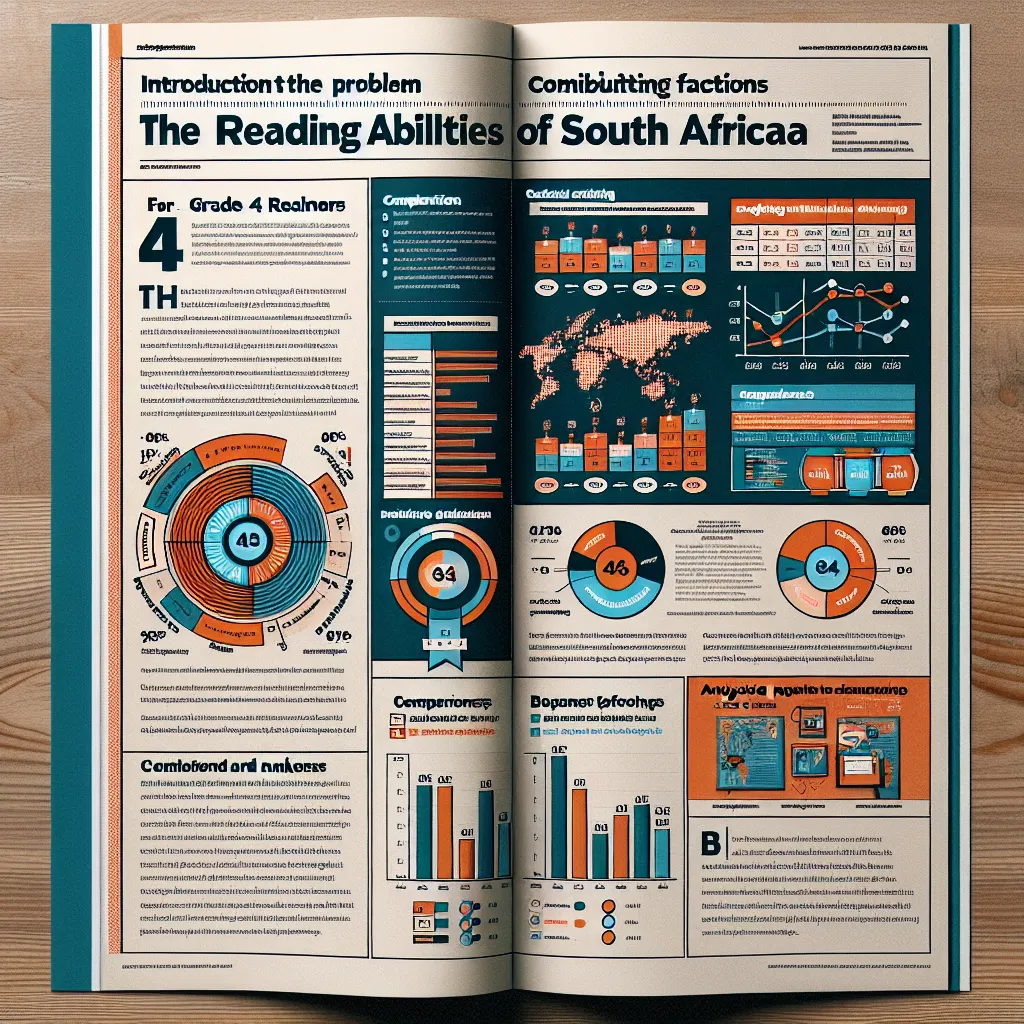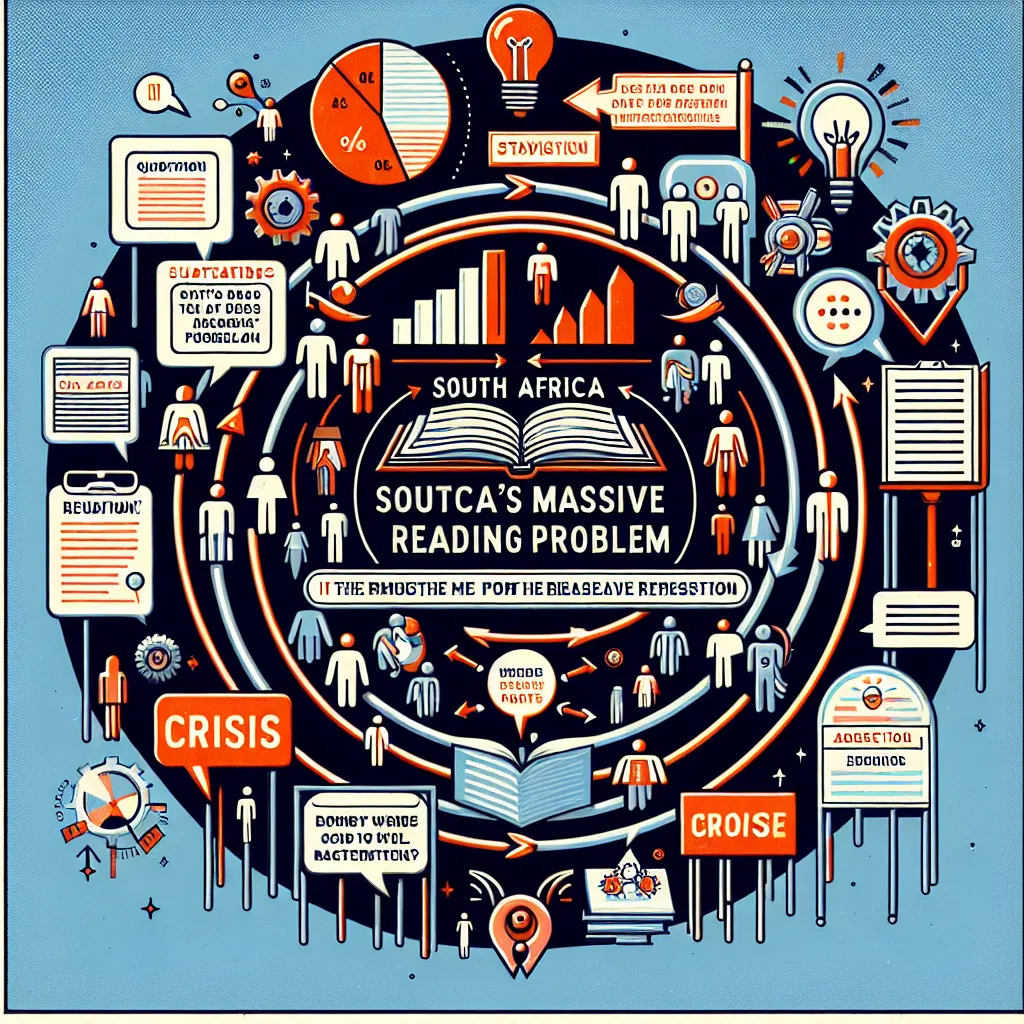Ask AI on The Internet
Question: South Africa’s massive reading problem Luke Fraser 16 May 2023 Grade 4 learners in South Africa have the worst reading ability in the world, with 81% incapable of reading for meaning. This is according to the 2021 Progress in International Reading Literacy Study (PIRLS 2021), which tested 12,426 learners across the country and compared them to students at a similar age level across 42 other nations. South Africa’s mean achievement score was 288 in the study, far below the 500 international average. Egypt was the second worst country in the study, but its score of 378 was well ahead of South Africa. A major concern for South Africa is that its achievement score has dropped significantly from the PIRLS 2016 study, where South Africa reported that 78% of children in Grade 4 could not read for meaning in any language. However, researchers noted that 21 of the 32 countries with trend data noticed a drop, with the Covid-19 pandemic having a major effect on teaching hours globally. In the 2021 study, Singapore (587), Hong Kong (573), the Russian Federation (567), England (588), and Finland (549) had the highest overall scores: The results in South Africa varied heavily across languages. Learners who were tested in Afrikaans and English scored significantly higher than those who were tested in African languages. Those tested in Afrikaans (387) and English (382) scored well above the average, while nine African languages scored below the mean, with Setswana (211) being the worstperforming language. Moreover, the Western Cape (363), Gauteng (320) and Kwa-Zulu Natal (297) outperformed the 288 mean, with more remote provinces Limpopo (244) and North-West (232) significantly lower. The biggest area of concern is that 81% of learners in the study were below the study’s low international benchmark, meaning that 81% of students cannot read for meaning. Moreover, only 11% of learners reached the low international benchmark, while 94% of students internationally could reach the low international benchmark. For South Africa, only 2% of readers could reach a high benchmark, while 1% reached the advanced benchmark. State of education The Centre for Development and Enterprise (CDE) previously said that South Africa has one of the worst-performing education systems in the world. “The President speaks of a ‘silent revolution’, while the minister talks of a ‘system on the rise’. The truth is that we face a silent crisis in our schools: South Africa has one of the worst performing education systems in the world,” said CDE’S Executive Director Ann Bernstein. The CDE said that South Africa spends roughly 13% of government revenue on education, which should improve competitive learning levels, reduce learning inequality, and train a large workforce. However, Professor Lant Pritchett said that South Africa is the biggest learning underperformer relative to GDP per capita among low and middle-income countries. Despite spending equivalent levels as high achieving Scandinavian countries, South Africa’s learning outcomes are worse than Kenya, Tanzania and Eswatini. Although poverty and ongoing infrastructural challenges have a debilitating effect on students, the incompetence of teachers has a massive effect on results. 80% of teachers in public schools lack the content knowledge and pedagogical skills for their subjects, For instance, the proficiency level of South African teachers (41%) is far below that of teachers in Zimbabwe (87%). Corruption is also not helping South Africa’s education system. A 2015 report by the National Education Evaluation and Development Unit (NEEDU) used to assess rural literacy found corrupt teacher hiring and promotion processes from union involvement. The “jobs for cash” scandal, as it was known, saw SADTU – the country’s dominant teacher union – get favoured individuals onto school governing bodies (SGBs) to ensure that those who paid positions could get them. The Minister of Education appointed a ministerial task team (MTT) to investigate the scandal, but Bernstein said that no government officials were prosecuted or suspended. Moreover, none of the MIT recommendations to tackle corruption have been implemented. Read: ‘Silent crisis’ at schools in South Africa – education department responds Source: South Africa’s massive reading problem – BusinessTech QUESTION 1: Genre, context, and register Read Text A and write a coherent and well-constructed answer in which you analyse the tone
Text A is a report on the state of reading ability among Grade 4 learners in South Africa, based on findings from the 2021 Progress in International Reading Literacy Study (PIRLS 2021). The tone of the text is largely serious, concerned, and analytical, reflecting the gravity of the situation and the urgency of addressing the educational shortcomings highlighted by the PIRLS data. Here's a detailed analysis of the tone: 1. **Serious and Concerned**: - The tone is serious and concerned as the statistics provided are alarming. Statements such as "Grade 4 learners in South Africa have the worst reading ability in the world" and "81% incapable of reading for meaning" immediately set a grave tone. - The concern is underscored by phrases like "A major concern for South Africa is that its achievement score has dropped significantly" and "The biggest area of concern is that 81% of learners in the study were below the study’s low international benchmark". These phrases emphasize the severity of the issue and the need for urgent attention. 2. **Analytical**: - The tone is analytical as the text provides a detailed breakdown of the data, making comparisons with other countries and analyzing the implications of the findings. By including specific numbers, such as "South Africa’s mean achievement score was 288 in the study, far below the 500 international average", the text maintains an evidence-based and analytical approach. - The analysis extends to identifying key factors contributing to the problem, such as language disparities and regional performance variations. By noting that "Learners who were tested in Afrikaans and English scored significantly higher than those who were tested in African languages," the text digs deeper into the data to provide a nuanced understanding of the issue. 3. **Critical**: - The tone becomes critical when discussing the performance of the education system and the role of government and teachers. Phrasing like "South Africa has one of the worst performing education systems in the world" and "80% of teachers in public schools lack the content knowledge and pedagogical skills for their subjects" indicates a critical perspective on the current state of education. - The criticism extends to issues of corruption and inefficiency within the system, with pointed comments like "Corruption is also not helping South Africa’s education system" and the description of the "jobs for cash" scandal. These elements highlight the systemic challenges that exacerbate the reading problem. 4. **Urgent**: - There is an urgent undertone to the report, especially when discussing the broader implications of poor reading skills for national development and economic progress. Mentioning that "Despite spending equivalent levels as high achieving Scandinavian countries, South Africa’s learning outcomes are worse than Kenya, Tanzania and Eswatini" suggests an urgent need for reforms to avoid long-term negative outcomes. - The quote from the CDE’s Executive Director Ann Bernstein, "we face a silent crisis in our schools," further accentuates this sense of urgency and the need for immediate and effective intervention. In conclusion, the tone of the text is serious and concerned, reflecting the alarming state of reading abilities among South African learners, while also being analytical, providing a detailed and data-driven examination of the issue. The critical perspective on the education system and the underlying urgency suggest a need for immediate action to address these deep-seated problems.
Think your answer is better than the AI's? Post it below.
Other Most Relevant Posts:
Question Tags
If you want your question answered by an AI, click here.







Post your own comment: